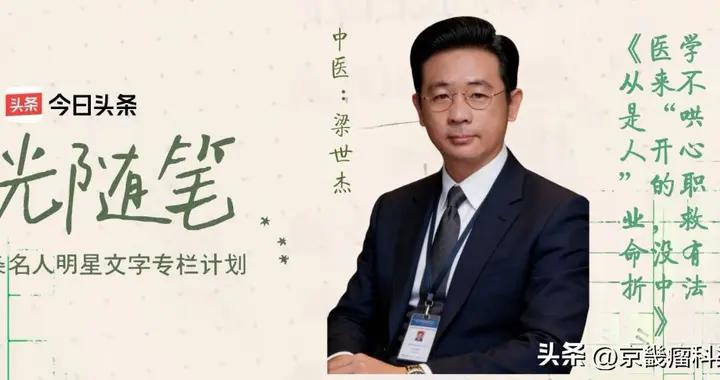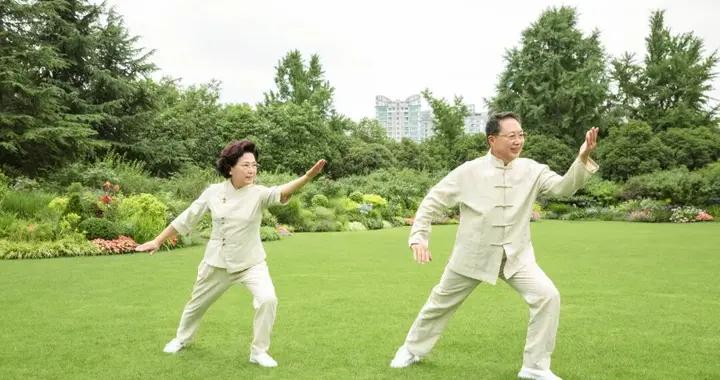成功學大師:如何編織夢想的迷網
在這個信息爆炸的時代,成功學大師們如雨後春筍般湧現,他們手握通往成功的金鑰匙,承諾爲每一個渴望改變命運的靈魂指引方向。然而,在這光鮮亮麗的背後,隱藏着的是一系列精心設計的心理戰術和認知操控。今天,就讓我們揭開成功學大師的神祕面紗,一探究竟他們是如何通過多種方式影響和說服他人的。

一、情感操控:點燃慾望,製造焦慮
成功學大師們深諳人性之弱,他們懂得如何激發人們對成功的渴望。通過描繪一幅幅財富、地位和榮耀的美好畫卷,讓聽衆彷彿觸手可及那遙不可及的夢想。然而,這僅僅是開始。緊接着,大師們會巧妙地製造焦慮,告訴你如果不立即行動,你將永遠被平庸所困,被失敗所吞噬。這種正負情感的交織,讓人在渴望與恐懼中搖擺不定,最終不得不尋求大師的“救贖”。
比如,某位大師在演講中慷慨激昂地說:“你們想要的是財富自由,是受人尊敬的地位,還是實現自我價值?但請記住,如果你不邁出這一步,這些都將永遠只是幻想!”隨後,他又話鋒一轉:“看看那些還在原地踏步的人,他們就是因爲缺乏勇氣,不敢改變,最終只能眼睜睜看着機會溜走。”

二、簡化複雜問題:成功公式,觸手可及
面對紛繁複雜的世界,人們往往渴望找到一條捷徑。成功學大師們正是抓住了這一點,他們將成功簡化爲幾個簡單的步驟或原則,讓聽衆覺得只要遵循這些“祕籍”,成功就指日可待。
“成功=努力+方法+心態”,這是某位大師提出的成功公式。他解釋說:“只要你足夠努力,找到正確的方法,保持積極的心態,你就能成功。”聽起來簡單明瞭,卻忽略了成功背後無數次的失敗與挫折。

三、權威效應:光環加身,無可爭議
權威,是說服他人的有力武器。成功學大師們深知這一點,他們通過展示自己的成就、頭銜以及與名人的關係,來增強自己的說服力。
“我曾與多位世界500強企業的CEO共進晚餐,他們都對我的理念讚不絕口。”某位大師在演講中自豪地說。這樣的言論,無疑爲他的觀點披上了一層權威的光環,讓聽衆更加信服。

四、社會認同:從衆心理,羣體壓力
人是社會性動物,我們總是傾向於模仿他人的行爲,尋求羣體的認同。成功學大師們利用這一點,通過展示大量的成功案例和學員反饋,讓聽衆覺得很多人已經從中受益,從而激發他們的從衆心理。
“看看這些成功的學員們,他們曾經也和你一樣迷茫,但現在他們已經實現了自己的夢想。”大師們如是說。同時,通過現場氛圍的營造和羣體互動,讓聽衆感受到跟隨大衆的壓力,從而更容易被說服。

五、承諾與一致性:小步快跑,深陷其中
成功學大師們深知人們傾向於保持行爲一致性的心理傾向。因此,他們先讓聽衆做出小承諾,如購買書籍或參加免費講座,然後逐步引導他們做出更大的投入。
“你只需要邁出這一小步,參加我們的免費講座,你就能開啓成功的大門。”大師們如是說。然而,這只是開始。隨着聽衆的不斷投入,他們越來越難以割捨已經付出的成本,最終深陷其中,無法自拔。

六、稀缺性:限時優惠,快速決策
“機會稍縱即逝,名額有限!”這是成功學大師們常用的口頭禪。他們通過製造稀缺感,讓聽衆覺得如果不立即行動,就會錯過千載難逢的機會。同時,提供限時折扣或額外福利,增加緊迫感,促使聽衆快速決策。

七、重複與強化:核心觀點,深入人心
成功學大師們深知重複的力量。他們通過不斷重複核心觀點,讓聽衆逐漸接受並內化這些觀點。同時,通過成功故事、勵志語錄等方式,不斷強化聽衆對成功的信念。
“記住,成功不是偶然,而是必然!只要你堅持不懈,你一定能成功!”大師們如是說。這樣的話語,在演講中不斷迴響,讓聽衆逐漸相信並堅定自己的信念。

八、認知偏差利用:確認偏誤,倖存者偏差
成功學大師們巧妙地利用人們的認知偏差。他們只展示支持自己觀點的證據,忽略反面案例,讓聽衆覺得他們的觀點無可爭議。同時,只展示成功的案例,忽略失敗者,製造成功似乎很容易的假象。
“看看這些成功的案例,他們都是按照我的方法取得了成功。”大師們如是說。然而,他們卻從未提及那些失敗者的故事,那些因爲盲目跟隨而陷入困境的人們。

九、故事化敘述:情感共鳴,生動易懂
故事,是人類共通的語言。成功學大師們通過講述個人奮鬥史或成功經歷,增強情感共鳴。同時,使用隱喻和類比,讓複雜概念更易理解,增強說服力。
“我曾經也是一個普通人,但我通過不懈的努力和正確的方法,最終實現了自己的夢想。”大師們如是說。這樣的話語,讓聽衆彷彿看到了自己的影子,從而更容易被說服。

十、羣體互動與儀式感:歸屬認同,情感共鳴
成功學大師們通過集體活動、口號或儀式,增強聽衆的歸屬感和認同感。同時,通過音樂、燈光等手段,營造情感氛圍,增強影響力。
“讓我們一起大聲喊出我們的口號:‘成功屬於我們!’”大師們如是說。在這樣的氛圍中,聽衆彷彿被一股無形的力量所牽引,他們熱血沸騰,激情澎湃,彷彿只要跟隨大師的腳步,就能實現自己的夢想。

然而,當狂熱退去,當理性迴歸,我們會發現成功並非如此簡單。成功學大師們的言論雖然振奮人心,但卻往往忽略了成功的複雜性和多樣性。他們編織的夢想迷網,雖然美麗誘人,但卻充滿了虛幻與泡沫。
因此,我們在追求成功的道路上,應該保持清醒的頭腦,理性的思維。不要盲目跟隨他人的腳步,而是要找到適合自己的道路。記住,成功沒有捷徑可走,只有通過不懈的努力和正確的方法,才能真正實現自己的夢想。

作者簡介:梁世傑 中醫高年資主治醫師,從事中醫臨牀工作24年,積累了較豐富的臨牀經驗。師從首都醫科大學附屬北京中醫院肝病科主任醫師、著名老中醫陳勇,侍診多載,深得器重,盡得真傳!擅用“商湯經方分類療法”、專病專方結合“焦樹德學術思想”“關幼波十綱辨證”學術思想治療疑難雜症爲特色。現任北京厚德爲懷醫生集團漸凍症研究中心主任,北京樹德堂中醫研究院研究員,北京中醫藥薪火傳承新3+3工程—焦樹德門人(陳勇)傳承工作站研究員,國際易聯易學與養生專委會常務理事,中國中醫藥研究促進會焦樹德學術傳承專業委員會委員,中國藥文化研究會中醫藥慢病防治分會首批癌症領域入庫專家。榮獲2020年中國中醫藥研究促進會仲景醫學分會舉辦的第八屆醫聖仲景南陽論壇“經方名醫”榮譽稱號。2023年首屆京津冀“扁鵲杯”燕趙醫學研究主題徵文優秀獎獲得者。事蹟榮登2024年第四季刊《當代科學家》雜誌。

The Master of Success: How to Knit a Dream''s Web
In this era of information explosion, success masters are springing up, they hold the golden key to success, promising to guide the direction of every soul eager to change their destiny. However, behind this glossy display lies a series of carefully designed psychological tactics and cognitive manipulations. Today, let''s unveil the mysteries of success gurus and discover how they have influenced and convinced others in so many ways.
I. Emotional manipulation: igniting desire and creating anxiety
Success gurus know the weakness of human nature, and they know how to stimulate people''s desire for success. By portraying beautiful images of wealth, status and glory, the audience can feel as if they have a dream that is far from reaching. However, this is only the beginning. Next, the gurus skillfully create anxiety, telling you that if you don''t act now, you will always be trapped in mediocrity and consumed by failure. This intersection of positive and negative emotions causes people to sway in desire and fear, and eventually have to seek the "redemption" of the Master.
For example, a guru said in a speech with great eloquence:“Do you want freedom of wealth, a position of respect, or the realization of self-worth? But remember, if you don''t take this step, these will always be fantasy!” Then he went on: "Look at those who are still walking in the same place. They are simply not brave enough to change and end up watching opportunities slip away."
II. Simplifying complex problems: the formula for success, within reach
Faced with a complex world, people are often eager to find a shortcut. Success gurus seize on this by simplifying success into a few simple steps or principles, making the listener feel like success is within reach simply by following these "secrets."
"Success = effort + method + mindset" is the formula for success proposed by a guru. He explained: "As long as you work hard enough, find the right approach and keep a positive mindset, you can succeed." Sounds simple and straightforward, but ignores the countless failures and setbacks behind success.
III. The authority effect: halo adds to body, undisputed
Authority is a powerful weapon to persuade others. Success gurus know this well, and they enhance their persuasion by showcasing their accomplishments, titles, and relationships with celebrities.
"I''ve had dinner with CEOs of Fortune 500 companies and they all raved about my philosophy." A guru proudly said in a speech. Such remarks undoubtedly added an aura of authority to his views and convinced the audience.
IV. Social identity: crowd psychology, group pressure
Humans are social animals, and we always tend to mimic the behavior of others and seek group identification. Success gurus use this to inspire their crowd psychology by presenting a large number of success stories and student feedback, making the audience feel like a lot of people have benefited from it.
"Look at these successful students who were once as confused as you, but now they have achieved their dreams." The masters said as much. At the same time, through the construction of the scene atmosphere and group interaction, so that the audience feel the pressure to follow the Volkswagen, so as to be more easily persuaded.
V. Commitment and Consistency: Take small steps and get involved
Success gurus know the psychological tendency of people to maintain consistency in their behavior. So they first ask listeners to make small commitments, such as buying books or attending free lectures, and then gradually lead them to make larger commitments.
"You only need to take this small step and attend one of our free lectures and you will be able to open the door to success." The masters said as much. However, this is just the beginning. As listeners continue to invest, it is increasingly difficult for them to shed the costs they have already paid, and eventually they are caught up in it, unable to get out of it.
VI. Scarcity: Limited-time offers, quick decision making
"Opportunities are fleeting, places are limited!" This is a mantra often used by success gurus. By creating a sense of scarcity, they make listeners feel like they are missing out on a once-in-a-lifetime opportunity if they don''t act now. At the same time, offering a limited-time discount or additional benefit increases a sense of urgency and prompts an audience to make a quick decision.
VII. Repeat and reinforce: core ideas that resonate with people
Success gurus know the power of repetition. By constantly repeating core ideas, they allow listeners to gradually accept and internalize these ideas. At the same time, the audience''s belief in success is constantly strengthened through success stories and motivational quotes.
“Remember, success is not an accident, it is inevitable! As long as you are persistent, you will succeed!”The masters said as much. Such words reverberate throughout the speech, allowing the audience to gradually believe and strengthen their beliefs.
VIII. Cognitive bias utilization: confirmation bias, survivor bias
Success gurus cleverly exploit people''s cognitive biases. They show only evidence that supports their point of view, ignoring negative cases and making the audience feel that their point is undisputed. At the same time, show only successful cases, ignore the losers, and create the illusion that success seems easy.
"Look at these successful cases, they all succeeded according to my approach." The masters said as much. Yet they never mentioned the stories of the losers, the people who got into trouble by blindly following.
IX. Storytelling: Emotional resonance, vivid comprehension
Stories are the common language of humanity. Success gurus enhance emotional empathy by telling a personal history of struggle or success. At the same time, use metaphors and analogies to make complex concepts easier to understand and more convincing.
"I used to be an ordinary person, but through unremitting effort and the right method, I finally achieved my dream." The masters said as much. Such statements make the audience feel as if they see their own shadow, making it easier to be persuaded.
Ten: Group interaction and ritualism: belonging and emotional empathy
Success gurus enhance their audience''s sense of belonging and identity through group activities, slogans or rituals. At the same time, through music and lighting, we can create an emotional atmosphere and enhance influence.
“Let us all shout our slogan: ''Success belongs to us!’”The masters said as much. In this atmosphere, the audience seems to be drawn by an invisible force, their blood is boiling and their passion is overflowing, as if by following the steps of the Master, they can realize their dreams.
However, when the mania recedes, and when reason returns, we discover that success is not so simple. The remarks of success gurus, while inspiring, often ignore the complexity and diversity of success. The dream web they woven, although beautiful and attractive, was full of illusions and bubbles.
Therefore, on the road to success, we should maintain a clear mind and rational thinking. Don''t blindly follow the footsteps of others, but find the path that suits you. Remember, there are no shortcuts to success, and it is only through unremitting effort and the right approach that you can truly realize your dreams.
Author Bio: Liang Shijie is a senior medical practitioner in traditional Chinese medicine. He has been engaged in traditional medicine clinical work for 24 years and has accumulated a wealth of clinical experience. Following Chen Yong, chief physician of liver disease at Beijing Traditional Medicine Hospital, affiliated with Capital Medical University, and renowned old Chinese medicine, he has been treated for many years and received great attention. He specializes in the treatment of difficult diseases using "conversational traditional therapy" and special treatments combined with the academic ideas of Jiao Shude and Guan Yubo''s ten-level diagnosis.He is currently the director of the Center for Diffusion Research of Dr. Houde Wei Group in Beijing, a researcher at the Shude Tang Institute of Chinese Medicine, and a fellow at the new 3 + 3 project of traditional Chinese medicine flame inheritance in Beijing - a scholar at the inheritance work station of Jiao Shude''s protégés (Chen Yong),He is a standing committee member of the International Expert Committee on E-learning and Health Care, a member of the Jiao Shude Academic Heritage Special Committee of the Chinese Association for the Advancement of Chinese Medicine Research, and the first cancer specialist to be included in the chapter of the Chinese Pharmaceutical Culture Research Association. Won the 2020 China Association for the Promotion of Traditional Chinese Medicine Zhongjing Medical Branch held the eighth session of the Medical Saint Zhongjing Nanyang Forum "Classic Prescription Famous Doctor" honorary title. The winner of the first Beijing-Tianjin-Hebei "Pingui Cup" Yanzhao Medical Research Essay Award in 2023. The story was featured in the fourth edition of Current Scientist in 2024.

















